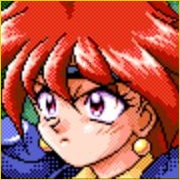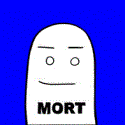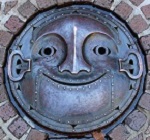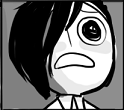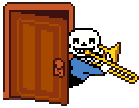|
The endgame kind of had a problem with going 'no wait, THIS is the true mastermind' like 3 or 4 times. At the very least they could've cut out the giant eyeball mastermind without losing much.
|
|
|
|

|
| # ? May 15, 2024 15:59 |
|
Policenaut posted:I would love to see North Korean Persona 4. Everyone's True Self is the Supreme Leader. North Korean Persona 3 would be better, because the Dark Hour where no electronics work lasts for like 22 hours each day.
|
|
|
|
Why are people suggesting that DDS(2) has a good story? The first half's was mostly just acceptable (while not being particularly good) and the second half was a complete loving train-wreck. I mean I understand that P4's story has some real problems, but seriously? loving Digital Devil Saga?
|
|
|
|
I liked Persona 4's plot more when it was the Investigation Team trying to home in on what the Midnight Channel was all about and how it related to the murderer (being wrong several times and having to re-evaluate what they thought they knew) and it kind of broke down once Naoto joins and takes control of the whole operation with every other character along for the ride. DDS was ok but the way they handled the plot with small segments in between huge levels was poorly paced.
|
|
|
|
|
The big issue with Persona 4 is the game pretends to be a mystery while it really isn't really a good or even decent one. I mean for most of the game it's just "oh hey lets investigate oh no someone got captured oh wait now they're fine let's go have some fun" Most of the "clues" you find are just poo poo that Naoto tells you or is spoonfed to you by other means and then the "true" ending is dumb because I can't think of a single person who didn't immediately know how the game was going to end when they had teacher on the island trip give a giant info dump on the myth of Izanagi. I never felt like I was gathering any real clues in general the entirety of the game since for the most part...You weren't. Not to mention the evidence you use to pin the killer was dumb and just seemed to be there to have Naoto The Exposition Queen show off some more. If the game didn't try to put a huge emphasis on ~it's such a cool mystery~ I don't think it'd have as many criticisms on that part. Although I haven't re-played P4 in like two years so maybe I'm just misremembering things but this lines up mostly with what I've seen other people complain about as well. From an objective standpoint the game itself is good but I can definitely see why people are less than happy with the plot. And not to open a can of worms but it was alot more light hearted and fluffy than any of the other SMT entries (even P3 was more serious even if it had a lot of silly moments) which understandably didn't sit too well with some people, not that it's an inherently negative trait or anything but there's no way it didn't color peoples perceptions when judging the game, which is why you see people overexaggerating how "bad" the plot was when it was inoffensive at worst. Ibram Gaunt fucked around with this message at 21:19 on Dec 26, 2012 |
|
|
|
Brother Entropy posted:The only real problem with P4's story is the meandering mid-game when the murder mystery part of the plot barely expands at all. That whole chunk of time when everyone thinks it's over because they caught Mitsuo but it's insanely obvious to the player that the game isn't even close to being over yet is paced really badly. So was everything after you beat Itsugi in P3. Calendar gameplay and having to fill up an entire year just fucks with pacing.
|
|
|
|
The thing is, DDS actually has a perfectly coherent plot up until the ending. The entire first half established mysteries and sets up a universe. It establishes the rules and asks a lot of questions that aren't answered right away. The second half answers those questions, and it does it competantly. The game is consistent in its rules and laws and the like...it's just that the ending doesn't say anything substantial, nor really contribute to the plot at all. Honestly you could have ended the game at the point where the earth gets deleted and the story would be much stronger for it. RentCavalier fucked around with this message at 22:58 on Dec 26, 2012 |
|
|
|
Policenaut posted:I would love to see North Korean Persona 4. Everyone's True Self is the Supreme Leader. How about Vietnam, instead? 
|
|
|
|
King of Solomon posted:Why are people suggesting that DDS(2) has a good story? The first half's was mostly just acceptable (while not being particularly good) and the second half was a complete loving train-wreck. I mean I understand that P4's story has some real problems, but seriously? loving Digital Devil Saga? DDS1 has an incredible story influenced mostly by its fascinating atmosphere, and feels as oppressive as Nocturne did. The dog-eat-dog meets Hinduism philosophical conflict made DDS1 as lot more interesting than people give it credit for. DDS2 also had a great plot, but it wasn't executed very well. The fact that they've gone from one Hell to another is what made me really enjoy the overall DDS saga. It was, to me, far more interesting than P4's "let's repeat every plot point fifty thousand times over."
|
|
|
|
is it okay for me to come on this board just to say how much I wish Lark Anderson would stop reviewing RPGs?
|
|
|
|
Azure_Horizon posted:It was, to me, far more interesting than P4's "let's repeat every plot point fifty thousand times over." Good thing that doesn't happen.
|
|
|
|
I think the easiest way to sum up P4's story being bad is, they wrote a murder mystery without knowing who the killer was. The party spends the entire game pursuing a person that didn't even exist.
|
|
|
|
The problem with that is that it isn't bad.
|
|
|
|
How is that not a bad thing? If you're going to string me along for 60 hours, you better drat well have something planned from the beginning.
|
|
|
|
You do realize that stories generally aren't written straight from beginning to end and if you change something in the ending that's it. If the writers change an element of the story, they can change other elements. They can change who the culprit is, and change the events leading up to the reveal of who the culprit is. Are you mad because Kanji was originally supposed to be older then the rest of the cast? After all, that clearly means they didn't have story planned right from the start, sprung from the ether.
|
|
|
|
Momomo posted:How is that not a bad thing? If you're going to string me along for 60 hours, you better drat well have something planned from the beginning. Uh, most stories undergo a writing process where they do not have everything planned out from the beginning. It sounds like you're taking an interview snippet wildly out of context. Edit: Like this isn't even games writing. This is most forms of media. The murder mystery in P4 was clearly secondary to the basic thematic idea behind "find the truth" with the murder mystery just forming the basic framework to allow that to be explored. It's not particularly deep or great by any means but it's pretty clear just from playing it that the framework that was important in development was in setting up a specific tone and atmosphere, not creating an Ace Attorney-style "find the culprit" thing. I mean all the stuff about Shadows and Unseen Truths and such that they hammer on about is the main meat of the game. It forms the bulk of the game's character interaction and a whole lot of Social Link time. The murders are just there to push that aspect. Again, it's pretty simplistic and basic writing, I'm not overly praising it here. However going "they didn't have the murder suspect chosen from the very beginning" is entirely missing the point to what actually mattered. There's a reason the 'true ending' isn't "catch the murderer" but "find the true source of the events." ImpAtom fucked around with this message at 00:44 on Dec 27, 2012 |
|
|
|
If you played P4 expecting a proper murder mystery then you kinda deserve to be disappointed.
|
|
|
|
Really, P4 seemed to be more about accepting one's own flaws, with the murder mystery stuff as an excuse for people to be thrown into TVs in the first place.
|
|
|
|
I thought proper mysteries were written with the ending first, then working backwards? I heard it on The Simpsons.
|
|
|
|
Dr Pepper posted:You do realize that stories generally aren't written straight from beginning to end and if you change something in the ending that's it. If the writers change an element of the story, they can change other elements. They can change who the culprit is, and change the events leading up to the reveal of who the culprit is. Well from what I remember reading, they said the story was written and when they got to the "final" reveal of who the killer was, they weren't sure who it would be. Considering the awful way they handled it, I don't think it's a stretch to say the game was poorly planned.
|
|
|
|
POWERFUL rear end SWEAT posted:I thought proper mysteries were written with the ending first, then working backwards? I heard it on The Simpsons. A good portion of mysteries begin with the murder method or the 'gimmick' of the mystery. That is because this is the thing that sells the mystery more than anything. Usually this means you start with a victim or a method of murder. Sometimes both. You see this a lot on television shows with 'murder of the week' television shows because the victim or the method are what set that episodes apart from one another. The actual culprit doesn't really matter because the bulk of the show is going to be dedicated to the first two. The culprit is usually worked into the story later, once you have a cast established. This is because having a good *cast* is the most important part. It's very easy to justify anyone as the culprit. In fact in a good murder story it's almost a must. Once you've got your cast you can figure out who works best as the murderer. In fact that's the basis for the board game Clue! (And why the Clue film has multiple endings which each theoretically work for the film. I love that movie.) Momomo posted:Well from what I remember reading, they said the story was written and when they got to the "final" reveal of who the killer was, they weren't sure who it would be. Considering the awful way they handled it, I don't think it's a stretch to say the game was poorly planned. You seem to be assuming this happened a lot later in production than it did, considering that they set the killer up in a pretty specific way. As established and following basic murder mystery rules there were basically three people who could reasonably have been the suspect. Dojima is by far the most likely choice after the actual killer but to my understanding they actually considered him at one point and chose not to do it for thematic and tone reasons. ImpAtom fucked around with this message at 01:04 on Dec 27, 2012 |
|
|
|
I don't really know that who actually did the murders is especially important to the story. It's not insignificant-- it's a question that requires an answer, but who the culprit is really is not a very important detail to the plot of the game. If while writing they got to that point, picked up the story by the leg and shook it to see what popped out, and got a reasonably plausible answer, that's passably good construction. It does follow from the events, maybe not as satisfyingly as some people would like but it's not without basis.
|
|
|
|
I'm finding it a bit strange to hear people focusing so much on Persona's "mystery story" angle. To be honest, I don't really feel that's the kind of story they were telling at all. Both Persona 3 and Persona 4 have always seemed to me like "Writer's Games"--that is, games kind of meant to showcase a lot of writing and stories that the team had devised. Persona 3's narrative is a meditation on death and what it means to live actively staring your mortality in the face. All of the social links reflect this in some way, if not by actively invoking death or someone's mortality, instead focusing on the "end" of something--the end of Maiko's parents' marriage, the end of the star athlete's sports career, and the end of Akinari's very life. Each social link takes this theme, applies it to a different character, and tells a short story about that particular character. The main game's plot is largely just there to justify the existence of gameplay vehicles like a big dungeon and monsters to fight. And of course, Personae and the like all tie into the psychological theme at the heart of the franchise, so there's tons of situations where people must overcome their own neuroses or come to terms with uncomfortable truths about themselves. That second one is basically series tradition, since every Persona game invokes "facing yourself" in some measure, and a lot of drama comes from playable characters having to own up to their own flaws or inner demons. Persona 4's central theme is "reach out to the truth" or whatever. I hate that phrasing, but that's neither here nor there. Anyway, Persona 4 does the exact same thing that 3 does--all of the Social links, or the broad majority, involve a character coming to terms with a personal flaw, or overcoming their own anxieties or social stigmas or whatever. A lot of them are just characters becoming comfortable with who they are. Since your party members are all social links, this time the links and the main game are much more closely linked. You have plot threads picked up in the main storyline that are only concluded in social links (like basically all of Dojima's character development). The story is a "mystery story" because what other type of storyline best captures the idea of "reaching out to the truth"? The detective story is really just a backdrop or a trappings to justify the existence of monsters and dungeons--though again, unlike 3, all of these elements are much more closely related. So, while it's fair to criticize weaknesses in the "mystery story" aspects of Persona 4, I think it's a mistake to assert that the game's plot itself is a "mystery story". I think both 3 and 4 are more like collections of stories loosely bound by an overarching plot--the "mystery" aspect is as vital to the impact of Persona 4's plot as the "after school monster slaying club" aspect was vital to the impact of Persona 3's.
|
|
|
|
It should have just been Dojima.
|
|
|
|
The thing about the murder mystery is that it's set up as their first long-term goal right at the start and then it takes almost the entire game for it to get resolved. It makes it feel like they're not actually making any progress without the progress just dumping itself into their laps without working for it. I mean yeah, it's not the biggest theme of the game or whatever, but it's a mystery that takes 50-60 hours for the player to resolve and that's a lot of time to have a question and goal in your player's mind and have it ultimately be not that important in the grand scheme of things. I think it might've worked better to introduce the Shadows and the TV world first and then have murders eventually start around the midgame.
|
|
|
|
ThePhenomenalBaby posted:It should have just been Dojima. It really shouldn't have. That would be way too dark for the tone of Persona 4, it would clash wildly with the entire game around it. e: And what ImpAtom said too. Cake Attack fucked around with this message at 01:29 on Dec 27, 2012 |
|
|
|
ThePhenomenalBaby posted:It should have just been Dojima. People say this but I don't really see why. Dojima's the second most likely culprit but he's not very satisfying for that perspective. It feels like people say it because it would be 'darker' but as a mystery resolution it would be pretty unsatisfying thematically. If Dojima was like an ideal father figure then I could see some merit for it, but he very specifically isn't. He's violent, angry, somewhat emotionally abusive, frequently gets drunk and has a lot of issues. His Social Links are more about how he's got good underneath his rough exterior. That's not a very good choice for the murderer being someone hiding themselves with a false face, which is what the themes of the story really call for.
|
|
|
|
Cake Attack posted:It really shouldn't have. That would be way too dark for the tone of Persona 4, it would clash wildly with the entire game around it. Yeah at that point you may as well go hog wild and make Nanako an aspect Izanami made when she got trashed one afternoon and ran over some lady and her daughter because the story sure as hell isn't going to recover from that sort of downer ending.
|
|
|
|
I don't agree with you but alright. I don't feel like typing three paragraphs about it that's for sure.
|
|
|
|
RentCavalier posted:Stuff about what P3 and P4 are about It's also worth noting that the mythologies for both (which are tied to strikingly similar mythical stories) are related to this too. Orpheus's pursuit of Eurydice is a kind of suicidal quest, and when he returns without her he gets torn apart by maenads because he's lost his faith in the gods (Dionysus anyway) and won't revel with them; it's a story about a man who wants to die if he can't be with the woman he loves. In some versions of his story he even commits suicide deliberately. This is an impulse Nyx attributes to all of humanity, the belief that if life is painful and full of defeat and loss mankind would rather die. The story of Izanagi and Izanami, on the other hand, is really about Izanami's inability to come to terms with her state and her death. When he sees her face Izanagi realizes his wife is dead and mustn't return, but instead of facing her fate with dignity and remaining in the underworld forever her rage and shame compel her to do harm to the living. Izanagi "reaches out for the truth" and makes the right decision, and Izanami's inability to accept her shadow self makes her lash out at innocents. Despite the similarities, the impulses of Orpheus and Izanagi are very different; Orpheus never recovers from the loss of Eurydice, while Izanami is the one who can't move on in that story. Baku fucked around with this message at 01:42 on Dec 27, 2012 |
|
|
|
Zombies' Downfall posted:It's also worth noting that the mythologies for both (which are tied to strikingly similar mythical stories) are related to this too. It just goes to show that there's very many layers of interesting development and stuff to be found in these game's storylines--it is why they are so impressive.
|
|
|
|
I think Dojima might have been a bit better than what we got, but still wouldn't be ideal. The whole thing about finding a specific person as a culprit probably should've been sidestepped. Focus it more on the shadows instead of making it a grand scheme, or something. Also, the whole theme of finding the truth was also not very satisfying. It never felt like the team really did anything other than fight people to find that truth. The game just kind of ends when they decide to stop looking.
|
|
|
|
Momomo posted:The game just kind of ends when they decide to stop looking. Yes, that is sort of the point and the reason for the multiple false endings. The game ends when they stop looking for the truth or believe they have found it. (That isn't to say they're all well executed since you can stop looking for the truth basically by accident in the case of the first false ending.) It's the entire reason for the goofy-rear end glasses metaphor which otherwise is remarkably pointless.
|
|
|
|
Zombies' Downfall posted:The story of Izanagi and Izanami, on the other hand, is really about Izanami's inability to come to terms with her state and her death. When he sees her face Izanagi realizes his wife is dead and mustn't return, but instead of facing her fate with dignity and remaining in the underworld forever her rage and shame compel her to do harm to the living. Izanagi "reaches out for the truth" and makes the right decision, and Izanami's inability to accept her shadow self makes her lash out at innocents. This is what I was referring to with the comb, by the way. Izanagi didn't see Izanami's real form until he removed the comb from his hair and burned it for light.
|
|
|
|
ImpAtom posted:Yes, that is sort of the point and the reason for the multiple false endings. The game ends when they stop looking for the truth or believe they have found it. (That isn't to say they're all well executed since you can stop looking for the truth basically by accident in the case of the first false ending.) It's the entire reason for the goofy-rear end glasses metaphor which otherwise is remarkably pointless. Well what I mean is, who says that's the really real truth? For all we know, that could've been yet another trap by someone. They played that card too many times for a satisfying ending like that to happen.
|
|
|
|
Oh, the color motifs of the respective games relate to that stuff too. Persona 3's dark, cool palette is tonally appropriate for a story about death, while Persona 4's golden hue is reflective of "illumination", and of the flame Izanagi shone on Izanami to behold her undead visage. The pink for the female MC in P3P is kinda silly! Zurai posted:This is what I was referring to with the comb, by the way. Izanagi didn't see Izanami's real form until he removed the comb from his hair and burned it for light. Yeah, this flame! Good eye. I guess I should play Golden. EDIT: And as a bonus, The Answer is about the party learning the difference between suicide and martyrdom; what differentiates the latter and makes it distinct from the impulse Nyx observes is that true martyrdom, dying so others might live, is a supreme and sacred act of love (rather than sorrow or defeatism). This is also where the lip-service connect to Christianity comes from, and why Orpheus becomes Messiah at the end. Baku fucked around with this message at 01:59 on Dec 27, 2012 |
|
|
|
Momomo posted:Well what I mean is, who says that's the really real truth? For all we know, that could've been yet another trap by someone. They played that card too many times for a satisfying ending like that to happen. Well, beyond it thematically making sense, it is because it addresses lingering questions which are not addressed by the other endings. It's not the true ending randomly, it's the true ending because you have to realize that questions went unanswered and actually seek them out. (Again, the actual method is a bit too obscured for this to be ideal.) They try to make it pretty clear. They answer questions, present the whole truth, and the hero finishes his story by finally evoking the final form of his starter Persona and removing his glasses while retaining his ability to see the truth. As far as an ending goes it is significant more climactic than anything else. Igor even says that you resisted the temptation of easy exits and false answers. You can make an argument "Well, maybe there are truths they didn't see and were never hinted at," but by that point it moves on to the fact that the ending is about continuing to look for truths. Even if there are it doesn't matter because as far as the limited context of the story goes you've shown that the protagonist isn't going to stop and accept an incomplete answer. The True Ending is the True Ending because it resolves the questions raised within the story and ends with the symbolic removal of the fog in the television world (and thus in humanity's collective unconsciousness). Unlike the other endings, there is no real reason to believe this is a false ending. ImpAtom fucked around with this message at 02:00 on Dec 27, 2012 |
|
|
|
Momomo posted:Well what I mean is, who says that's the really real truth? For all we know, that could've been yet another trap by someone. They played that card too many times for a satisfying ending like that to happen. All the loose ends are tied up? Like, I guess it could, but it's very deliberate that at every other fake-out (for lack of a better term), there are still unanswered questions if you look closely enough. Namatame's motivations are suspect, and don't fit with the threatening letters, while Adachi being the culprit still doesn't explain how everybody first go their Persona abilities.
|
|
|
|
Cake Attack posted:All the loose ends are tied up? Like, I guess it could, but it's very deliberate that at every other fake-out (for lack of a better term), there are still unanswered questions if you look closely enough. Namatame's motivations are suspect, and don't fit with the threatening letters, while Adachi being the culprit still doesn't explain how everybody first go their Persona abilities. Was that really a question anyone was asking though?
|
|
|
|

|
| # ? May 15, 2024 15:59 |
|
TurnipFritter posted:Was that really a question anyone was asking though? If you weren't still asking about why the controller shook and your character got dizzy after the attendant shook your hand then you weren't paying attention.
|
|
|














